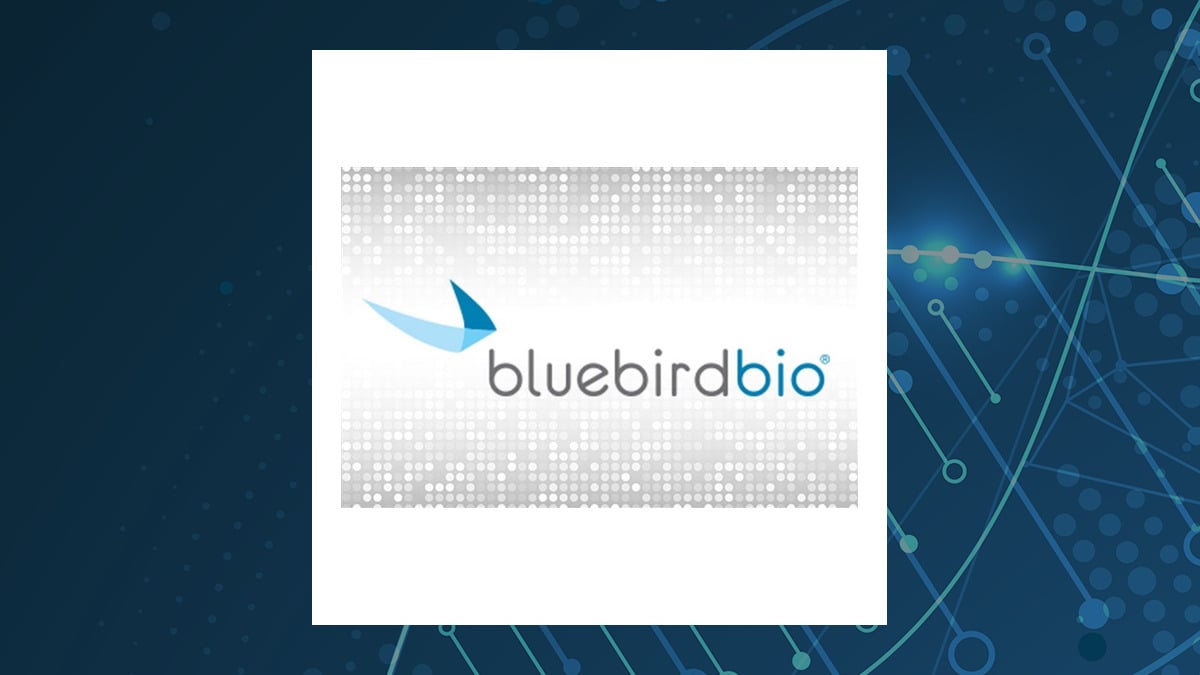bluebird bio (NASDAQ:BLUE – Get Free Report) and SpringWorks Therapeutics (NASDAQ:SWTX – Get Free Report) are both medical companies, but which is the superior business? We will compare the two companies based on the strength of their profitability, valuation, risk, dividends, earnings, analyst recommendations and institutional ownership.
Insider and Institutional Ownership
87.4% of bluebird bio shares are owned by institutional investors. 1.4% of bluebird bio shares are owned by company insiders. Comparatively, 7.6% of SpringWorks Therapeutics shares are owned by company insiders. Strong institutional ownership is an indication that endowments, large money managers and hedge funds believe a company is poised for long-term growth.
Valuation & Earnings
This table compares bluebird bio and SpringWorks Therapeutics”s gross revenue, earnings per share (EPS) and valuation.
| Gross Revenue | Price/Sales Ratio | Net Income | Earnings Per Share | Price/Earnings Ratio | |
| bluebird bio | $53.12 million | 0.71 | -$211.91 million | ($37.40) | -0.10 |
| SpringWorks Therapeutics | $191.59 million | 22.44 | -$325.10 million | ($3.48) | -16.48 |
Profitability
This table compares bluebird bio and SpringWorks Therapeutics’ net margins, return on equity and return on assets.
| Net Margins | Return on Equity | Return on Assets | |
| bluebird bio | -565.74% | -322.46% | -53.17% |
| SpringWorks Therapeutics | -134.73% | -46.74% | -41.12% |
Analyst Recommendations
This is a breakdown of current recommendations for bluebird bio and SpringWorks Therapeutics, as reported by MarketBeat.
| Sell Ratings | Hold Ratings | Buy Ratings | Strong Buy Ratings | Rating Score | |
| bluebird bio | 1 | 7 | 2 | 0 | 2.10 |
| SpringWorks Therapeutics | 0 | 0 | 5 | 0 | 3.00 |
bluebird bio presently has a consensus target price of $44.14, indicating a potential upside of 1,037.70%. SpringWorks Therapeutics has a consensus target price of $73.20, indicating a potential upside of 27.62%. Given bluebird bio’s higher possible upside, equities analysts clearly believe bluebird bio is more favorable than SpringWorks Therapeutics.
Volatility and Risk
bluebird bio has a beta of 0.68, indicating that its stock price is 32% less volatile than the S&P 500. Comparatively, SpringWorks Therapeutics has a beta of 0.81, indicating that its stock price is 19% less volatile than the S&P 500.
Summary
SpringWorks Therapeutics beats bluebird bio on 10 of the 14 factors compared between the two stocks.
About bluebird bio
 bluebird bio, Inc., a biotechnology company, researches, develops, and commercializes gene therapies for severe genetic diseases. Its product candidates for severe genetic diseases include ZYNTEGLO (betibeglogene autotemcel) for the treatment of transfusion-dependent ß-thalassemia; lovotibeglogene autotemcel for the treatment of sickle cell disease (SCD); and SKYSONA (elivaldogene autotemcel) to treat cerebral adrenoleukodystrophy. The company’s clinical development programs include HGB-205, HGB-206, and HGB-210 to evaluate the safety and efficacy of lovo-cel in the treatment of patients with SCD; and HGB-204, HGB-205, HGB-207, and HGB-212 to evaluate the safety and efficacy of beti-cel in the treatment of patients with ß-thalassemia. It has license agreement with Orchard Therapeutics Limited. The company was formerly known as Genetix Pharmaceuticals, Inc., and changed its name to bluebird bio, Inc. in September 2010. bluebird bio, Inc. was incorporated in 1992 and is headquartered in Somerville, Massachusetts.
bluebird bio, Inc., a biotechnology company, researches, develops, and commercializes gene therapies for severe genetic diseases. Its product candidates for severe genetic diseases include ZYNTEGLO (betibeglogene autotemcel) for the treatment of transfusion-dependent ß-thalassemia; lovotibeglogene autotemcel for the treatment of sickle cell disease (SCD); and SKYSONA (elivaldogene autotemcel) to treat cerebral adrenoleukodystrophy. The company’s clinical development programs include HGB-205, HGB-206, and HGB-210 to evaluate the safety and efficacy of lovo-cel in the treatment of patients with SCD; and HGB-204, HGB-205, HGB-207, and HGB-212 to evaluate the safety and efficacy of beti-cel in the treatment of patients with ß-thalassemia. It has license agreement with Orchard Therapeutics Limited. The company was formerly known as Genetix Pharmaceuticals, Inc., and changed its name to bluebird bio, Inc. in September 2010. bluebird bio, Inc. was incorporated in 1992 and is headquartered in Somerville, Massachusetts.
About SpringWorks Therapeutics
 SpringWorks Therapeutics, Inc., a commercial-stage biopharmaceutical company, engages in the development and commercialization of medicines for underserved patient populations suffering from rare diseases and cancer. Its lead product candidate is OGSIVEO (nirogacestat), an oral small molecule gamma secretase inhibitor that is in Phase III DeFi trial for the treatment of desmoid tumors; and Nirogacestat, is also in Phase 2 clinical development as a monotherapy for the treatment of ovarian granulosa cell tumors (GCT), a subtype of ovarian cancer. The company is also involved in the development of mirdametinib, an oral small molecule MEK inhibitor that is in Phase 2b clinical trials for the treatment of neurofibromatosis type 1-associated plexiform neurofibromas (NF1-PN); mirdametinib + lifirafenib, a combination therapy that is in Phase 1b clinical trial in patients with advanced or refractory solid tumors; and mirdametinib in monotherapy and combination approaches to treat other genetically defined solid tumors, including Phase 1/2 clinical trial for the treatment of pediatric and young adult patients with low-grade gliomas. In addition, it develops Brimarafenib (BGB-3245), an oral selective small molecule inhibitor of monomeric and dimeric forms of activating BRAF mutations. The company has collaborations with BeiGene, Ltd. and GlaxoSmithKline LLC; and license agreements with Pfizer Inc. for nirogacestat and mirdametinib. It also has a license agreement with Katholieke Universiteit Leuven and the Flanders Institute for Biotechnology for a portfolio of novel small molecule inhibitors of the TEA Domain; and Dana-Farber Cancer Institute for a portfolio of novel small molecule inhibitors of Epidermal Growth Factor Receptor. The company was founded in 2017 and is headquartered in Stamford, Connecticut.
SpringWorks Therapeutics, Inc., a commercial-stage biopharmaceutical company, engages in the development and commercialization of medicines for underserved patient populations suffering from rare diseases and cancer. Its lead product candidate is OGSIVEO (nirogacestat), an oral small molecule gamma secretase inhibitor that is in Phase III DeFi trial for the treatment of desmoid tumors; and Nirogacestat, is also in Phase 2 clinical development as a monotherapy for the treatment of ovarian granulosa cell tumors (GCT), a subtype of ovarian cancer. The company is also involved in the development of mirdametinib, an oral small molecule MEK inhibitor that is in Phase 2b clinical trials for the treatment of neurofibromatosis type 1-associated plexiform neurofibromas (NF1-PN); mirdametinib + lifirafenib, a combination therapy that is in Phase 1b clinical trial in patients with advanced or refractory solid tumors; and mirdametinib in monotherapy and combination approaches to treat other genetically defined solid tumors, including Phase 1/2 clinical trial for the treatment of pediatric and young adult patients with low-grade gliomas. In addition, it develops Brimarafenib (BGB-3245), an oral selective small molecule inhibitor of monomeric and dimeric forms of activating BRAF mutations. The company has collaborations with BeiGene, Ltd. and GlaxoSmithKline LLC; and license agreements with Pfizer Inc. for nirogacestat and mirdametinib. It also has a license agreement with Katholieke Universiteit Leuven and the Flanders Institute for Biotechnology for a portfolio of novel small molecule inhibitors of the TEA Domain; and Dana-Farber Cancer Institute for a portfolio of novel small molecule inhibitors of Epidermal Growth Factor Receptor. The company was founded in 2017 and is headquartered in Stamford, Connecticut.
Receive News & Ratings for bluebird bio Daily - Enter your email address below to receive a concise daily summary of the latest news and analysts' ratings for bluebird bio and related companies with MarketBeat.com's FREE daily email newsletter.
